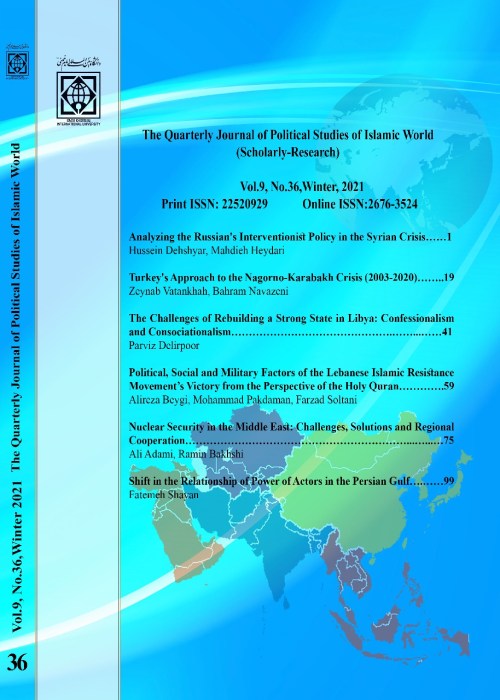UAE Foreign Policy Instabilities; From the Arab Uprisings to the Policy of Normalizing Relations with Israel
After the Arab uprisings, the UAE increasingly sought to play an effective role in regional power relations. Due to its geographical location and trade-based economy, it seeks to expand its political and military influence in various areas of the region. To legitimize these goals, Abu Dhabi put the policy of aligning with world powers on its agenda. To the extent that it pursued a policy of normalizing relations with Israel in order to confront its regional rivals and to overcome the economic consequences of its regional policies. Therefore, the main purpose of this article is to answer the question: what are the factors influencing the change in the foreign policy strategy of the UAE after the unrest in the Arab world?
In order to achieve the objectives of the research and answer the question, an attempt has been made to test the changes in the foreign policy of the United Arab Emirates by a descriptive-analytical method and using library resources.
The Arab revolutions and subsequent developments paved the way for a new wave of political transition in the region. The UAE faced a political transition in the region due to its conservative political structure. At this time, the country pursued a different foreign policy since independence. The failure of many Arab uprisings plunged the region into new crises, which provided an opportunity for the UAE to pursue its political goals in the region with an aggressive approach.
Although the UAE, with the support of the remnants of former regimes and secular nationalist parties, confronted the wave of post-Arab Spring political Islam and at some point sought an independent path of influence from allies such as the Saudis, the policy choice of the normalization of relations with the Zionist regime has created a context of widespread instability in the country's foreign policy.
- حق عضویت دریافتی صرف حمایت از نشریات عضو و نگهداری، تکمیل و توسعه مگیران میشود.
- پرداخت حق اشتراک و دانلود مقالات اجازه بازنشر آن در سایر رسانههای چاپی و دیجیتال را به کاربر نمیدهد.



